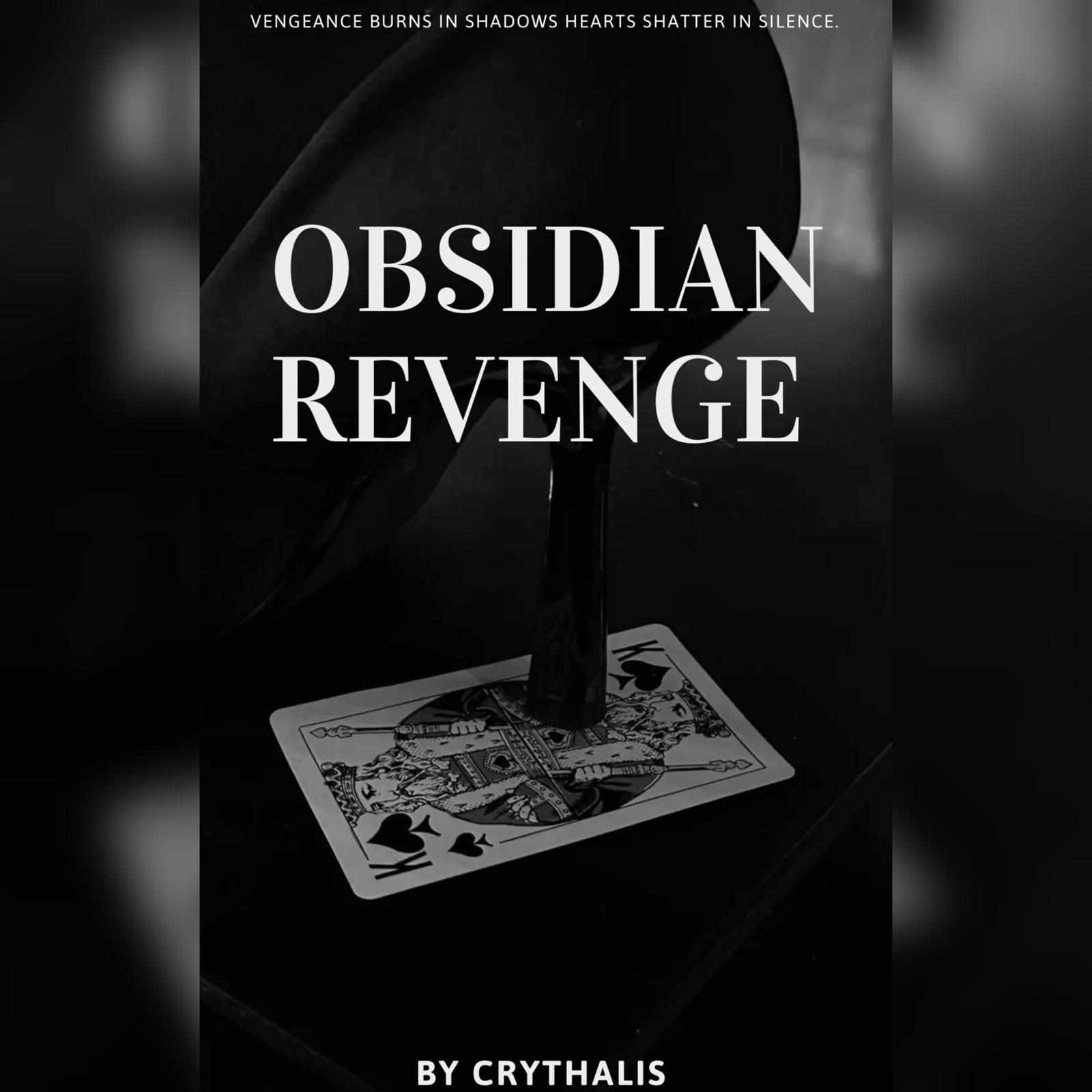Chitraangda POV
The clock on the wall ticked louder than usual. Or maybe it was just my heart, always racing, always bracing for the sound of boots at the door. I sat on the cold marble floor, grinding the wheat into flour, my hands moving mechanically. Five months ago, I was a girl who dreamt of college degrees and independence. Now, I was a prisoner in silks and chains.
I wiped the sweat on my forehead with the edge of my dupatta. The kitchen smelled faintly of smoke and dry wheat—never of spices. Never of taste. I wasn’t allowed that luxury. Salt, masala, oil—all were forbidden to me. “You don’t deserve flavor,” he had told me once, his voice smooth with cruelty. My meals were plain, boiled vegetables and water. Tonight, my tongue craved even the simplest pinch of salt, but my stomach was used to emptiness. Hunger had become my shadow.
I rolled the dough into rotis, my fingers trembling because the circles were not perfect. If he saw the uneven edges, if he smelt even the faintest burn, punishment would follow. My body still bore the memory of the last time—three days of bruises hidden beneath the long sleeves he insisted I wear.
My throat was parched, but I dared not drink too much water. I had to save it. Every sip was measured, like my breaths. I bent down, puffed the flatbread, and pressed it gently on the tawa. The hiss of the hot iron pan reminded me of his temper—instant, scalding, merciless.
A single mistake, and my night would be worse than my day.
The house outside was silent, suffocating. The maids kept their distance from me, whispering that I was “madam” but their eyes always carried pity. They knew what happened behind the closed doors of Abhiraj Singh Rajpoot’s bedroom. Everyone knew. No one dared intervene.
I tried to distract myself with the rhythm of cooking. Roti, vegetable, repeat. But each passing moment pushed me closer to dusk—closer to him.
At night, I was not a wife. I was his possession, a body to vent his anger on, a vessel for his vengeance. Sometimes, when he touched me, I clenched my eyes shut and imagined myself elsewhere—my home, my mother calling me to dinner, my sister Juhi giggling over silly things. But the illusion always shattered with the sound of his breath against my skin, the weight of his fury pressing me into the mattress.
I pressed my nails into my palm to stop the tears. Crying had no place here. Tears only made him angrier.
Tonight would be no different. I would feed him, keep my head lowered, pray that the food was not too salty or too bland. Then, when the night deepened, when the doors were locked, I would become what he had made me—his captive, his punishment, his shadow.
Sometimes, I wondered if I was still Chitraangda—the bright, dusky girl with dreams in her eyes—or if she had died the night he dragged me into this mansion and chained me with sindoor and mangalsutra.
The rotis puffed softly on the flame. I flipped them carefully, my fingers burning against the edge of the pan, but I didn’t flinch. Pain was familiar now. It was safer than defiance.
I heard the sound then—the low roar of an engine outside, the crunch of gravel beneath heavy tires. My hands froze. My heartbeat stuttered.
Abhiraj Singh Rajpoot had returned.
I quickly stacked the rotis, smoothed my hair, wiped the flour from my cheek. My throat was dry as dust, but I forced myself to swallow. My body knew the ritual well—obedience, silence, endurance.
Because in this house, I was not allowed to be anything else.
The moment his boots echoed in the hallway, my blood froze. My hands trembled over the rolling pin, the dough sticking to my palms like glue. Five months of this prison, and the sound of him returning still made my stomach curl.
Then he was behind me, close enough that I could feel the heat of his body against mine. His arm circled my waist like a trap. I tried to shrink into myself, tried to disappear, but there was no escaping him.
“Chitraangda,” he said softly, almost teasing. The voice was a lie. The softness made the venom behind it sharper. “Busy in the kitchen, are we? Cooking for me?”
I stayed silent. My throat burned, my heart hammered. Saying anything could be wrong. Saying nothing could be wrong. Either way, punishment was inevitable.
Then he spun me around. His hand slapped my cheek with the force of a storm. Pain lanced across my face. I tasted copper, felt the heat of humiliation burn hotter than the kitchen fire.
“Look at this mess!” he spat, his nails digging into my jaw, tilting my head back. “You think you can pretend to be obedient while sneaking thoughts of your useless life? You think I don’t see the contempt behind those eyes?”
I swallowed hard. Tears pricked, but I blinked them away. Crying here would have been a death sentence. Each breath I took was measured, like a trembling bird trapped in a cage.
He leaned close, his shadow covering me completely. The air around him was suffocating, heavy with anger, and something darker—pleasure at my fear.
“You will learn,” he hissed. “Every mistake. Every second of hesitation. You will burn for it.”
Then, with a push that sent me stumbling against the counter, he stepped back. The air seemed to shatter. My hands shook, the roti I had just prepared fell to the floor. The kitchen was silent except for my ragged breaths and the echo of his boots retreating down the hall.
“Move!” he called, cold and sharp. “Get the food to the table, or I will make sure you can’t walk for weeks. Understand?”
I nodded silently, swallowing a scream that wanted to tear itself out of my chest. My fingers were raw from kneading dough, my cheek stung, my whole body screamed for rest—but there was no rest. Only survival.
I picked up the tray with trembling hands. Each step toward the dining room felt like walking a tightrope over fire. The shadow of his threat followed me, pressing down on my shoulders, on my spine, on my mind. I was alive, but only barely. Every breath was borrowed, every heartbeat under his control.
I thought of my family. I thought of my sister Juhi. I thought of the girl I used to be. She was gone. And in her place, only fear remained.
The sound of the cutlery clinking against fine china was deafening. He sat at the grand dining table, his posture perfect, his eyes sharp and commanding. The rich aroma of the meal he had prepared for himself—spices, oil, and flavor—filled the air. I couldn’t smell any of it. My food had no taste, no smell. Just boiled vegetables and plain rice, served in a small plate, placed carefully on the floor behind his polished shoes.
I knelt there, my knees pressing into the cold marble, back straight, head lowered. My fingers hovered over the plate. I hadn’t felt this level of degradation before, even in my worst nightmares. Eating on the floor while he dined like a king felt like a wound carved into my soul.
I forced myself to lift the first bite to my lips. It was dry. I could almost feel the absence of salt, the lack of spice, as if the food itself punished me. I chewed mechanically, swallowing every mouthful with effort, trying not to gag, trying not to cry.
Abhiraj’s eyes flicked down at me once, and a shadow of amusement crossed his face. Not a kind amusement—no, it was darker, a predator watching a trapped bird flail in vain.
“You eat like a beggar,” he said, voice low but sharp, cutting through the polite clatter of his own eating. “Good. Learn your place.”
I didn’t respond. My throat was dry, my tongue stiff. A single word could earn me another punishment. Instead, I lowered my gaze, keeping my attention on the bland meal in front of me, pretending the humiliation didn’t tear at every fiber of my being.
I could hear the way he chewed, the way he drank water with a crisp slurp, the casual authority in every movement. This was my life now: invisible at the table, visible only as an object of control. I realized once again that I was nothing to him beyond fear and possession.
A shiver ran down my spine as he leaned back in his chair, eyes narrowing slightly. “Don’t forget,” he said softly, but the menace in his tone froze me in place. “If the food isn’t ready properly tomorrow, or if you even hesitate while serving it… I will make sure the next time you kneel here, you’ll regret having legs to kneel with.”
I swallowed hard. My mouth was dry, the food tasteless, and yet every bite I forced down felt heavier than the last. My body ached, my stomach protested, but I knew better than to refuse.
As he continued eating, I imagined myself small and invisible, a shadow under his dining table. Every glance from him reminded me how powerless I was. Every clink of his cutlery was a reminder that I was trapped in this gilded cage of his making, living a life that had no room for hope.
I dared not look up. My body tensed with every movement he made, fearing another sudden blow, another push, another word that would cut me deeper than any slap could.
And yet, in the darkest corner of my mind, a spark persisted. A tiny, trembling thought whispered: This cannot be forever. I will survive this. I must survive this.
But for now, survival meant silence. Survival meant kneeling behind him, chewing plain food while he indulged in flavors I could never taste, and keeping my face blank, obedient, invisible.
I finished the plate in silence, the last bite scraping harshly against my teeth. My hands shook so badly I had to press them against the floor to steady them. He didn’t look at me again—just leaned back, satisfied, while I remained on the cold floor, swallowed by the shadow of his presence.
The kitchen chores, the boiled meals, the endless servitude—it was my world now. And the knowledge that tonight, when darkness came, he would once again assert his control over me in ways I could neither stop nor escape, pressed on my chest like a stone.
I closed my eyes briefly, tasting only the bitterness of my life, and prayed for a moment of mercy that would never come.



Write a comment ...